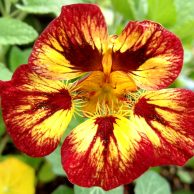 Incorporating edible flowers in your cuisine not only adds visual appeal, but also can offer high nutritional value and great flavors. Edible flowers have been used for millennia in many cultures to enhance everything from salad to beer and wine. A quick internet query on “ancient edible flower recipes” revealed many results. It could be a fun family event to recreate a heritage recipe!
Incorporating edible flowers in your cuisine not only adds visual appeal, but also can offer high nutritional value and great flavors. Edible flowers have been used for millennia in many cultures to enhance everything from salad to beer and wine. A quick internet query on “ancient edible flower recipes” revealed many results. It could be a fun family event to recreate a heritage recipe!
The flavor of many flowers is improved by removing the sexual parts – stamens, anthers and pistils. And, you will notice how a flowers’ flavor can vary as the plant ages throughout the season, and with variations in the soil, and climate (think terroir!)
There are plenty of edible flowers to choose from, but caution is required, as some flowers are definitely NOT safe to eat. It’s safe to assume that a flower is not edible unless it’s one of those known to be safe. First, make sure that you know the correct identity of the plant. Then, it’s very important that your plants have not been exposed to pesticides. If you are unsure about either of these points, don’t eat any part of the plant until its safety can be positively assured. Just because you recognize a resemblance between a new flower and one you know is edible doesn’t mean it’s safe to eat! There are plant families that contain near-lookalikes, some of which are edible and tasty while their close relatives are seriously, even lethally, toxic.
Even though they contain some of our most important and eminently edible crops, some of the plant families to be especially wary of are the Parsley (Apiaceae) family, Nightshade (Solanaceae) family, and Legume/Bean (Fabaceae) family. Lastly, just because another part of a plant is known to be edible, like the seed, root, or foliage, doesn’t mean that the flower is edible.
COMMON GARDEN PLANTS AND WEEDS WITH EDIBLE FLOWERS
-
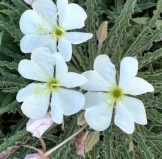
Evening Primrose / Oenothera
Anise Hyssop
- Apple
- Arugula
- Bachelor Button / Cornflower
- Basil
- Bee Balm
- Black Locust
- Borage
- Calendula
- Campanula/Bellflower
- Chamomile
- Chicory
-
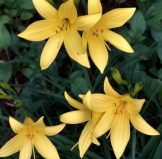
Daylily / Hemerocallis
Chives
- Cilantro
- Cleome
- Crambe maritima, Sea Kale
- Cucumber
- Dandelion
- Daylily
- Dianthus
- Dill
-
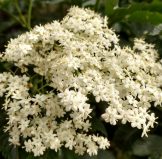
Elderberry
Elderberry
- Evening Primrose/Oenothera
- Fava Bean
- Fennel
- Green Bean
- Honeysuckle
- Lavender
- Lemon Balm
- Lilac
- Lilac
-
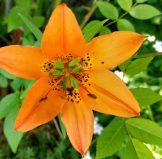
Lilium philadephicum
Lily / Genus Lilium
- Linden
- Marigold
- Mint
- Mint
- Monarda
- Nasturtiums (Pictured above)
- Pansy
- Parsley
- Pea (the vegetable only)
- Pelargonium
-
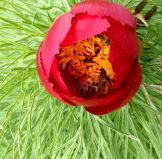
Fernleaf Peony
Peony
- Pumpkin
- Quince
- Redbud
- Rose
- Rosemary
- Sage
- Savory
- Scarlet Runner Bean
-
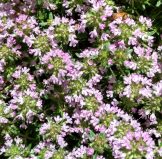
Thyme
Squash
- Sweet Woodruff
- Tall Garden Phlox / Phlox Paniculata
- Teucrium
- Thyme
- Tulip
- Viola, Johnny Jump-Up
- Violet
- Watermelon
COMMON FLOWERS THAT ARE NOT EDIBLE
-
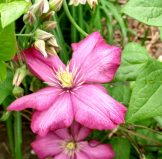
Clematis
Anemone / Windflower
- Baby’s Breath
- Buttercup Ranunculus, Trollius, Caltha
- Clematis
- Columbine
- Datura / Angel’s Trumpet
- Delphinium / Larkspur
- Hydrangea
-
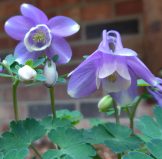
Columbine
Iris
- Monkshood
- Nicotiana / Flowering Tobacco
- Petunia
- Poppy
- Sweet Pea
